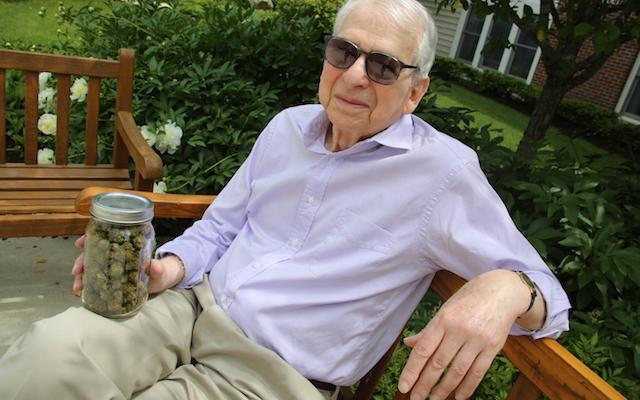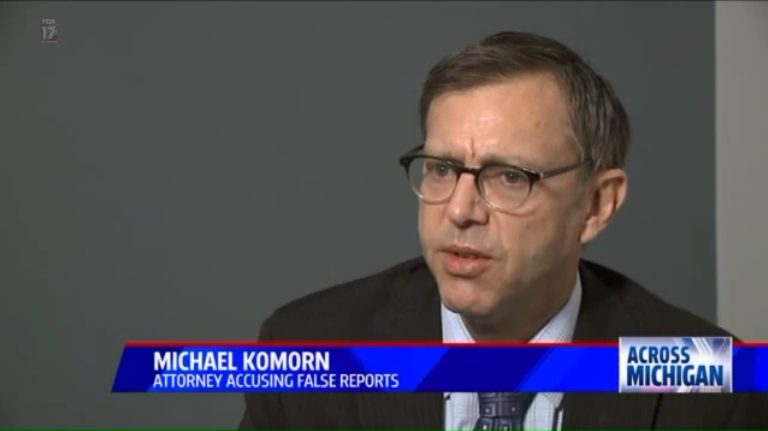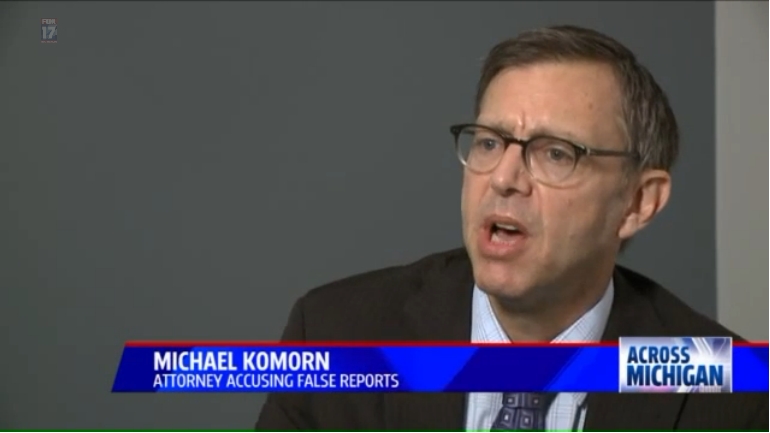
Mar 23, 2016 | Health Benefits of Marijuana, Medical Marijuana, Planet Green Trees Radio
It’s a popular theme in marijuana use – the “entourage effect.” It’s defined as the broad-spectrum sense of wellness derived from consuming an unaltered or concentrated form of cannabis. All the natural chemicals found in cannabis are ingested simultaneously.
Any single chemical in isolation does not perform in the same way that a substance will when associated with other chemicals found in the original, natural source. The three primary components of the marijuana chemical cocktail include CBD, THC and the phytocannabinoid group of terpenoids.
CBD by itself performs different than CBD in conjunction with THC, and both perform differently when in the presence of terpenoids. Marijuana’s strength and effect varies by strain based on the ratio of these three components, among other factors.
“It’s a mixture of CBD, cannabidiol, THC and the phytochemicals, the terpenoids,” says Harvard Professor, Dr. Lester Grinspoon. “You need all three of them to get the best therapeutic effect.”
But Dr. Grinspoon says that he entourage effect, the broad-based experience cannabis users have when they consume marijuana containing all three components, is improperly named, Grinspoon told listeners of the Planet Green Trees Radio Show on Thursday, March 10. He prefers the term “therapeutic ensemble.”
“I think that the ensemble is a better idea than entourage, because the word ‘entourage’ implies one item moving in this direction – and it has company,” Dr. Grinspoon explained, “and it is [the item] that is responsible for that activity, and the others just go along. That’s entourage.
“The word ‘ensemble’” he continued, “means that these are the three things that are required for the best therapeutic effect, but you can manipulate the percentage of two of them.”
Those are THC and CBD, Dr. Grinspoon stated. “The phytochemicals, the terpenoids, they come with it, as long as it is derived from the bud, from the plant and not from some oil where all the phytochemicals have been distilled out. As long as you are getting it from the bud you can manipulate by mixing strains.”
Dr. Grinspoon illustrated the advantage of the therapeutic ensemble, and the effect seen when it is absent: “Cannabidiol is a non-psychoactive cannabinoid, which in fact opposes tetrahydrocannabinol, the psychoactive. If you take a large dose of CBD for therapy during the day and you try to use THC at night you won’t get high. On the other hand, you can make the THC high compared to the CBD, the ratio is reversed, and you will get a high. As long as you have the two of them, and the phytochemicals, the terpenoids, you will get a therapeutic effect.”
Charlotte’s Web, a strain of cannabis known for its high CBD and low THC ratio, was cited by Dr. Grinspoon as an example of plant manipulation to express effect. “People can use [that strain] for therapeutic utility and they won’t get high, and that’s great. On the other hand, there are some people who like to have more THC in it so they get somewhat of a high, because high equals antidepressant for some people and that is very important.”
The therapeutic ensemble is the key to maximizing medicinal effect. “In the world of the future we’re gonna have this therapeutic ensemble. You’ll be able to go into the medical store… and you can get a mix where you get the right ratio of cannabidiol to THC,” Dr. Grinspoon opined. “As long as that has terpenoids with it, it will be therapeutic.”
Advances in marijuana testing are making medicinal cannabis use more user-friendly by identifying the product’s ratio of components. Patients can look past flashy names to find medicine that will deliver consistent, predictable effects. “It will be very easy for [medical marijuana patients] to pick it out because it isn’t the name of the strain; it’s how much of these three constituents the marijuana-based medicine contains,” Dr. Grinspoon said.
One group that could benefit from this kind of targeted therapy: veterans. “PTSD is very responsive to cannabis,” Dr. Grinspoon related to PGT host, attorney Michael Komorn.
Dr. Grinspoon is a pioneer in marijuana science. During the interview he discussed some of his earliest experiences with marijuana and how they were influenced – some might say, peer-pressured – by a young Carl Sagan.

Rick Thompson
By Rick Thompson · Thu Mar 17, 2016
Listen to the entire interview with Dr.Grinspoon on Planet Green Trees here.

Dec 24, 2015 | Blog, Komorn Law Blog, Medical Marijuana, Medical Marijuana Attorney Michael Komorn, News
GRAND RAPIDS, Mich. — At least three attorneys filed federal complaints Tuesday against the Michigan State Police Forensic Science Division for allegations of serious negligence or misconduct, and to contest grant money the crime labs received this year.
However, officials with both the MSP and the Michigan Attorney General’s Office told FOX 17 their agencies are not conducting investigations into these allegations.
Each complaint filed Tuesday was issued to the National Institute of Justice, Office of Investigative and Forensic Sciences’ Director. Attorney Mike Nichols and attorneys Michael Komorn and Neil Rockind together wrote to inform the NIJ of the accusations that the MSP crime labs have been misreporting marijuana test results and elevating misdemeanors to a felony for the possession or manufacture of synthetic marijuana.
In late October, FOX 17 broke these allegations when Komorn uncovered internal MSP e-mails where some crime lab analysts and directors themselves protested a new THC reporting protocol change. Namely, MSP-FSD Controlled Substance Unit Supervisor Bradley Choate wrote in part, “For the laboratory to contribute to this possible miscarriage of justice would be a huge black eye for the division and the department.”
Komorn accuses the Prosecuting Attorneys Association of working inappropriately with and influencing policy of the MSP crime labs to misreport marijuana extracts, such as oils and edibles, as synthetic THC, a felony. The change seen on lab reports stems from a recent MSP-FSD policy change in the way THC is reported. Analysts are now required to write phrases such as “origin unknown” on crime lab reports when THC is tested when they believe they cannot determine the substance’s origin. Extracts have not been reported in this way for decades before, as one analyst testified back in April.
MSP is a 2015 recipient of the Paul Coverdell Forensic Science Improvement Grants Program.
This year the National Institute of Justice data shows it awarded MSP-FSD $236,488 in funding. One of the stipulations as a grant recipient is to name an independent external government entity to conduct investigations when allegations of serious negligence or misconduct occur. In addition to investigating these allegations, grant recipients are also required to report the allegations to NIJ.
However, records show that MSP-FSD has named its independent external investigating entity as MSP-Internal Affairs. In the filed federal complaints, Nichols, Komorn and Rockind state their concerns that MSP-Internal Affairs is not independent or external from MSP, and also asked for a thorough investigation to be done into these allegations.
“It’s an avenue to bring to light some very real and important concerns,” said Nichols.
“The Michigan State Police Internal Affairs unit is the entity that is set up through the grant that they applied for to investigate complaints,” he said. “Well, that’s the fox guarding the hen house obviously, but it’s the mechanism that’s in place, so I’ve asked for them to utilize it.”
The complaints filed Tuesday to NIJ follow Komorn Law’s complaints regarding MSP crime lab marijuana testing allegations filed Dec. 11 with the U.S. Department of Justice Civil Rights Division, the FBI and the Civil Rights Division for the Eastern District of Michigan, which has referred it to the U.S. Attorney’s Office for the Western District of Michigan in Grand Rapids.
Despite the allegations and filed complaints, MSP Public Affairs Manager Shanon Banner told FOX 17 on Tuesday that the MSP-IA is not investigating. In e-mails Banner said:
“I have confirmed that for at least the last three years, our Coverdell grant application, which was approved by the National Institute of Justice, has included the MSP Professional Standards Section (aka Internal Affairs) as the “government entity” responsible for investigating any allegations of serious negligence or misconduct. The Professional Standards Section maintains responsibility for investigating all allegations of misconduct involving MSP employees. These investigators are housed within the Office of the Director and are not members of the Forensic Science Division.
An internal policy change does not constitute misconduct or negligence. Therefore, no investigation is underway.”
When FOX 17 pressed Banner further she wrote:
“As stated in the earlier response, our designation of the MSP Professional Standards Section as the entity to conduct investigations has been approved by the NIJ for at least three grant cycles. Our review of the guidance provided by the NIJ for this grant did not uncover any federal guidelines as to what constitutes an “independent external entity.” Since the Professional Standards Section is independent, and external to the Forensic Science Division, it appears sufficient. However, your question may best be posed to the NIJ.
As to your second follow-up, the MSP does not consider your reports on a debate among colleagues prior to an internal policy decision to rise to the level of an allegation of misconduct.”
FOX 17 has reached out to the NIJ, and has yet to hear back.
Despite Banner stating the MSP does not consider these concerns allegations of misconduct, a recent chain of MSP emails show the agency appears to be keeping a close eye on FOX 17 reports. In a recent 159-page email chain between MSP personnel and supervisors that Nichols obtained through the Freedom of Information Act, in an email dated Nov. 12 Banner emailed MSP supervisors and agency leaders a link to FOX 17’s Nov. 10 report and stated:
“FYI – Here is Dana Chicklas’ most recent story from Tuesday night on medical marijuana.”
Nichols, like Komorn, Rockind, and many others, continue to push for reform in MSP crime lab procedures, beginning with a timely investigation into these allegations.
“There has been some very gray discussion about doing something to fix what happened in Ottawa County, but that’s not good enough,” said Nichols. “We need to make a change, it’s got to happen.”
“When the forensic analyst comes to court, regardless of who calls them, take off the Michigan State Police pin, put it on the stand, take off the Michigan State Police hat, and tell it like it is, and work with the accused the same way, with the same vigor, to seek justice that you would with the prosecutor.”
FOX 17 has reached out to Governor Rick Snyder’s office for comment regarding MSP crime lab allegations and filed complaints. As of Tuesday evening we have no response.
As for Ottawa County defendant Max Lorincz, his criminal case is pending.
Read Nichols’ full NIJ complaint here.
Read Rockind and Komorn’s NIJ complaint here.
Read Komorn Law’s filed DOJ complaint here.
Read Max Lorincz MSP LAB REPORT Exhibits
BY DANA CHICKLAS – Read the Original Post
Komorn Law Social Media
Recent Posts
Tag Cloud
2021
BMMR
cannabis
CBD
corruption. prosecutors
dispensary
Driving
DUI
forfeiture
gun rights
hemp
komornlaw
lara
law enforcement abuse
laws
Legalization
marijuana
Medical Marijuana
Michigan
michigan laws
michigan news
MMFLA
MRA
news
police
politics
science
usa news
us supreme court
Your Rights
DISCLAIMER
This post may contain re-posted content, opinions, comments, ads, third party posts, outdated information, posts from disgruntled persons, posts from those with agendas and general internet BS. Therefore…Before you believe anything on the internet regarding anything – do your research on Official Government and State Sites, Call the Michigan State Police, Check the State Attorney General Website and Consult an Attorney – Use Your Brain.

Oct 31, 2015 | Blog, Criminal Defense Attorney Michael Komorn, Komorn Law Blog, Medical Marijuana Attorney Michael Komorn, News
Posted on MLive 10/30/15
OTTAWA COUNTY, MI – An attorney claims prosecutors pressured state police crime labs to change the way THC, the active ingredient in marijuana, is reported in an effort to circumvent Michigan’s medical marijuana law.
Michael Komorn alleges scientists were told to report an unknown origin for THC contained in oil, wax or perhaps a brownie if no visible plant material was present. The THC would then be declared a synthetic substance rather than marijuana – turning a misdemeanor pot charge to a two-year felony.
“The crime lab is systematically biased towards falsely reporting Schedule 1 synthetic THC, a felony, instead of plant-based marijuana, a misdemeanor, ” Komorn, a Southfield attorney known for handling medical marijuana cases, told The Grand Rapids Press and MLive.
In the case of Max Lorincz, a 35-year-old Spring Lake man with a medical marijuana card, the change could turn him into a felon, Komorn said.
Lorincz’s troubles started in September 2014 after calling 911 for medical assistance for his wife. A police officer responded and spotted a small amount – “a smudge,” Komorn said – of hash oil.
Ottawa County prosecutors charged him in January with marijuana possession, a misdemeanor. He refused to plead guilty because he was a valid medical marijuana user. The charge was dropped in February, only to be replaced by the felony synthetic THC charge.
Komorn used the Freedom of Information Act to obtain numerous emails from state police crime lab workers, some raising concern about the way they had to report THC cases. Others testified in court about the new policy of denying evidence of THC coming from a marijuana plant if no material is found.
He contends that the Prosecuting Attorneys Association of Michigan and state Attorney General Bill Schuette, an opponent of medical marijuana, influenced state police policy.
“It is scandalous, scandalous. How can you trust the state lab when they are influenced by politicians?” he said.
State police said in a statement: “The ultimate decision on what to charge an individual with rests with the prosecutor. The role of the laboratory is to determine whether marihuana or THC are present. Michigan state police laboratory policy was changed to include the statement “origin unknown” when it is not possible to determine if THC originates from a plant (marihuana) or synthetic means. This change makes it clear that the source of the THC should not be assumed from the lab results.”
Ottawa County Prosecutor Ronald Frantz could not be reached for comment.
A hearing in Lorincz’s case is set for Nov. 9 in Ottawa County Circuit Court.
In an email Komorn obtained from authorities, a state police crime lab supervisor, Kyle Hoskins, said examiners need to see plant material because they would have no idea how it was produced unless they watched its production. He noted the debate and asked the opinion of Ken Stecker of the Prosecuting Attorney Association of Michigan, who reportedly responded: “That is my opinion, THC is a schedule 1 drug regardless of where it comes from. I hope that helps. Ken.”
Marijuana is a Schedule 2 drug under state law.
Related: ‘It’s been a nightmare,’ man says of contested synthetic marijuana charge
Lt. James Pierson, director of the Grand Rapids laboratory, said that police are finding a “significant amount of THC wax and oil,” which he said are not covered by the medical marijuana law.
If police seize wax or oil from a medical marijuana patient, and the lab test identifies the substance as marijuana, rather than delta-1-THC, there is no probable cause to arrest, Pierson said in an email referenced by Komorn in court filings.
He said he learned that if a “speck” of plant material is in the oil, the test will come back as marijuana.
“Is there any way to get this changed? Our prosecutors are willing to argue that one speck of marijuana does not turn the larger quantity of oil/wax into marijuana,” Pierson wrote.
Bradley Choate, supervisor of the Controlled Substances Unit in Lansing, disagreed with the changes. He said analysts are left with two choices when finding THC: identify it as marijuana, which is a misdemeanor for possession, or a synthetic equivalent of THC, which is a felony if possessed.
“There is not a third choice,” Choate wrote. “The question then becomes is the THC from a natural source, i.e., marihuana, or a synthetic source. The presence of other cannabinoids indicates that the substance is from a natural source. I don’t know of any other way to determine that THC was synthesized unless a lab was found and the pre cursor substances to make THC were present.”
He said prosecutors rely on their reports in filing charges. A report that says delta-1-THC with no explanation would lead a prosecutor to think the substance was synthetic.
“This could lead to the wrong charge of possession of synthetic THC and the ultimate wrongful conviction of an individual. For the laboratory to contribute to this possible miscarriage of justice would be a huge black eye for the Division and the Department.”
As forensic scientists, Choate said they had to apply science to the law.
“I have a problem with the procedure manual stating that a conclusion of marihuana cannot be stated in the report. … The conclusion is incorrect because the resins are Marihuana. Apparently analysts in our system (are) hung up on the fact that to identify marihuana they need to see plant material.”
Choate said that “Guiding Principles” training says “that ‘Conclusions are based on the evidence and the reference material relevant to the evidence, not on extraneous information, political pressure, or other outside influences.”
“When we made the previous changes I made it very apparent that I did not agree with it. One of my concerns was that by reporting out THC instead of marijuana it would lead Prosecutors charging people with synthetic THC. This appears to be what the agency wants. The question I would pose to all of our analysts is how they would answer questions on the stand.
“In the scenario described how would they answer the question that absent the plant material speck, in their opinion is the rest of the wax material marihuana or not and in their opinion is the THC identified synthetic or natural? Again the legal definition of marihuana includes the resinous extract which contains cannabinoids and we can identify those cannabinoids.”
see original article and more stories here
John Agar covers crime for MLive/Grand Rapids Press E-mail John Agar: jagar@mlive.com and follow him on Twitter at twitter.com/ReporterJAgar

Oct 30, 2015 | Blog, Criminal Defense Attorney Michael Komorn, News
SPRING LAKE, Mich. – The defense representing a Spring Lake father facing a felony marijuana charge is accusing Michigan State Police Forensic Science Division crime labs of misreporting marijuana intentionally. It’s an allegation with statewide implications.
FOX 17 first reported Max Lorincz’s case in February: He’s a card-carrying medical marijuana patient. He was charged with felony possession of synthetic tetrahydrocannabinol (THC) for having a smear amount of butane hash oil (BHO).

“If nobody stands up for this and it just keeps going the way it is, how many more people are going to get thrown under the bus just for using their prescribed medicine?” asked Lorincz. “It’s just ridiculous.”
Lorincz said BHO, which is made from marijuana resins, is a prescription he uses for debilitating pain. On an unrelated medical emergency call for his wife, law enforcement found a smear of BHO in his family’s home. Now, in part as a result of the charges, Lorincz has lost custody of his six-year-old son, restricted to supervised public visits for the past several months.
After FOX 17 reported his case, attorney Michael Komorn at Komorn Law PLLC took Lorincz’s case pro bono.
Komorn said MSP crime labs, along with the Michigan attorney general’s office and the Prosecuting Attorneys Association of Michigan, changed crime lab reporting policies for reporting marijuana back in 2013. Based on documents and emails received through the Freedom of Information Act, Komorn said state laboratories are falsely reporting marijuana as synthetic THC, essentially turning a misdemeanor charge into a felony.
“What is unique about this case is that they [the prosecution] are relying on the lab to report these substances so that they can escalate these crimes from misdemeanors to felonies,” said Komorn.
First charged with misdemeanor marijuana possession, Lorincz refused to plead guilty because he is a card-carrying medical marijuana patient. According to the Michigan Medical Marijuana Act, this charge can be dropped through Section 4 immunity, or Section 8 by asserting an affirmative defense.
However, the Ottawa County prosecutor charged Lorincz with felony synthetic THC possession, relying on the state lab report results from his BHO.
According to Lorincz’s crime lab report, technicians deemed his BHO to be “residue, delta-1-Tetrahydrocannabinol, schedule 1,” then the phrase, “origin unknown.”
The state lab scientist testified in an earlier April preliminary exam that they could not determine whether Lorincz’s BHO was natural or synthetic. However, the prosecution charged him with felony synthetic THC possession.
“When you have a laboratory that is looking at a substance and reporting it in a way that makes it a Schedule 1 instead of the marijuana they know it is, it’s creating a crime,” said Komorn.
“This is a lie,” Komorn said. “We have emails within the state laboratory communications indicating this, that they know it’s unlikely, more than unlikely near an impossible, that the patients and caregivers are in a laboratory synthesizing THC. It’s not happening, yet they report it as such.”
Komorn filed motions in Ottawa County Circuit Court in this case earlier this week. His firm is stating that the crime labs and prosecution are reporting “bogus crimes,” turning crime labs into a “crime factory.” He stands firm that the prosecution has no credible evidence to charge or convict Lorincz, especially since the state lab scientist testified they cannot prove the substance to be natural or synthetic.

“The lab as far as I’m concerned has lost its integrity,” said Komorn.
“You can’t play around with this type of thing and make stuff up and create crimes and be influenced by what the prosecutors want you to do and then come to court, take an oath, and expect to be received as an expert in forensic science. You’ve lost that.”
FOX 17 reached out to Michigan State Police for comment. The MSP public affairs department for the office of the director released this statement to FOX 17:
“The ultimate decision on what to charge an individual with rests with the prosecutor. The role of the laboratory is to determine whether marihuana or THC are present. Michigan state police laboratory policy was changed to include the statement “origin unknown” when it is not possible to determine if THC originates from a plant (marihuana) or synthetic means. This change makes it clear that the source of the THC should not be assumed from the lab results.”
FOX 17 has also reached out to the Michigan attorney general’s office and Prosecuting Attorneys Association of Michigan for comment.
The motions filed in court are calling for an evidentiary hearing Nov. 5.
Posted 7:45 PM, October 28, 2015, by Dana Chicklas
Related Posts
a-non-stop-political-game-former-msp-forensic-science-director-on-false-marijuana-reporting
Michigan’s medical marijuana law circumvented by crime labs’ THC reports, attorney charges
Emails spell out alleged scandal in state crime lab testing, falsely reporting marijuana

Sep 26, 2015 | Legalization, Medical Marijuana, News
July 01, 2015
A series of papers in the Journal of the American Medical Association is starting to correct the shameful legacy of drug war politics over cannabis science. But a research catch-22 persists.
The nation’s top medical organization released a major series of papers on medical cannabis last week in the Journal of the American Medical Association, in a move that constitutes a small step for the AMA, but a giant leap in cannabis medical history.
In five key papers, teams of researchers systematically reviewed dozens of clinical studies of marijuana, speaking in clear language that the “use of marijuana for chronic pain, neuropathic pain, and spasticity due to multiple sclerosis is supported by high-quality evidence.”
The review validated what doctors and patients in California have risked their freedom to say for twenty years. The findings also directly refute critics who maintain that “marijuana is not medicine.”
“They concluded cannabis is useful,” said Dr. Frank Lucido, a Berkeley physician who specializes in cannabis. “I don’t think a single study didn’t show benefit. … I think it was very positive.”
“What’s driving this is a tremendous cultural shift that’s preceding the political shift,” said Martin Lee, of author Smoke Signals. The AMA is acknowledging “what’s been known for 5,000 years.”
The AMA actually opposed federal cannabis prohibition in 1937. After losing that round, most doctors have toed the Drug War line ever since. “It’s great that they have finally acknowledged there’s some medicinal value in cannabis, but the whole thing is so pathetic,” Lee said.
Most major news media outlets, however, have spun the JAMA papers negatively, embracing the narrative that many uses for medical pot are still based on poor science. News reports noted that of one of the JAMA studies found that “there was low-quality evidence suggesting that cannabinoids were associated with improvements in nausea and vomiting due to chemotherapy, weight gain in HIV infection, sleep disorders, and Tourette syndrome.”
News outlets also pointed to another review that found that “there is some evidence to support the use of marijuana for nausea and vomiting related to chemotherapy, specific pain syndromes, and spasticity from multiple sclerosis. However, for most other indications that qualify by state law for use of medical marijuana, such as hepatitis C, Crohn disease, Parkinson disease, or Tourette syndrome, the evidence supporting its use is of poor quality.”
Cannabis experts say the problem with some of the conclusions in the JAMA studies, and the reporting about them, is that they fail to own up to the main reason why study quality has often been poor: the systematic blockade on pot research. For decades, the federal government has refused to authorize research on the medical benefits of cannabis. As a result, the inconclusiveness of some of the research is more a reflection of the federal ban than of the medical effectiveness of pot. “You know how incredibly hard it is to do research that is intended to confirm benefits of cannabis?” said Warner. “It’s impossible. We still have a huge catch-22.”
Experts also say that the decision by AMA researchers to ignore the research blockade shows their bias. “It’s a national embarrassment. The federal designation that cannabis has no medical value is like saying the moon is made of green cheese,” Lee said. “It seems the AMA can’t say, ‘No, the moon is not made of green cheese.'”
The AMA researchers also fail to acknowledge the real world benefits reported by patients. For example, about one in twenty California adults (1.4 million) have used medical cannabis for a “serious” condition and 92 percent of them have reported that it worked. “We have plenty of evidence that it helps for a lot of things,” Lucido said. “We should always do more research. But we shouldn’t stop people from using it in the meantime.”
The AMA researchers also listed the side effects of cannabis without providing context. “Adverse Effects included dizziness, dry mouth, nausea, fatigue, somnolence, euphoria, vomiting, disorientation, and hallucination,” one of the reports concluded.
But the AMA researchers didn’t compare the adverse side effects of cannabis to those of competing analgesics and anti-inflammatories. Painkiller overdoses are America’s leading epidemic. Ibuprofen, for example, regularly causes kidney failure. But those facts were not mentioned in the JAMA studies. “A full third of the Physician’s Desk Reference is adverse effects, including death,” Lucido said. “Cannabis has about ten adverse effects, at least two of which are often desired.”
The AMA researchers’ statements about cannabis addiction also lacked context. “I imagine sleeping pills probably have a much bigger dependency ratio,” Lucido said.
Still, as half-hearted and equivocal as the JAMA papers were, they contributed to a rising tide of mainstream validation for cannabis that’s washing away its prohibition.
“Culturally, the fight is over. We won,” Lee said. “The pro-cannabis side has conquered the culture. Now politics is catching up.”


















